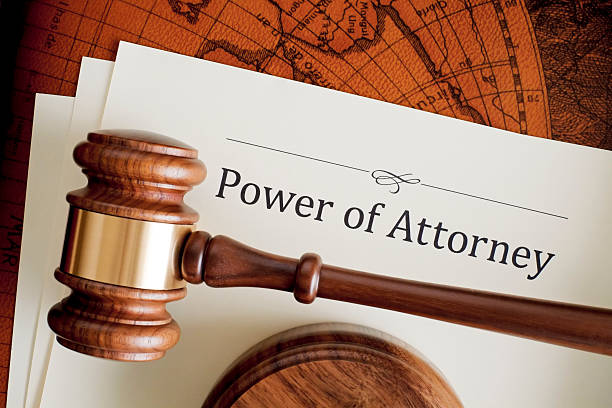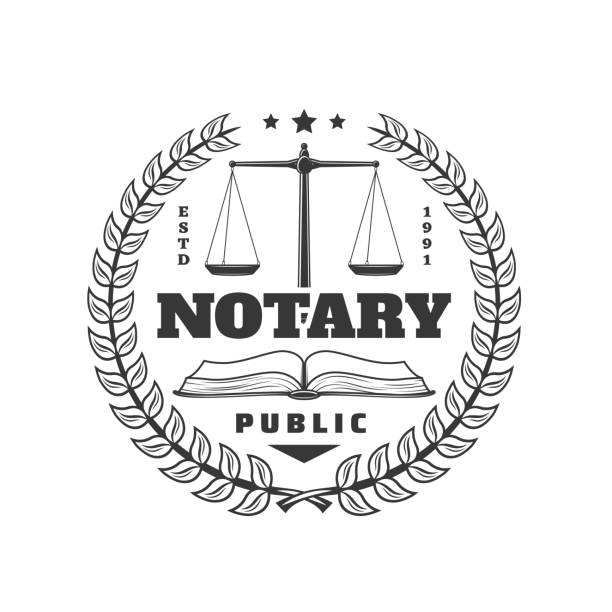The Intricacies of Legal Paperwork: Notarized Power of Attorney

Introduction
Legal paperwork can be confusing, but there are some documents that are more important than others. One of these important documents is called a Power of Attorney (POA), and it’s a good idea to have it notarized. But what does it mean to notarize a power of attorney, and why is it necessary? It’s actually not as complicated as it may seem. Keep reading to understand this important legal paper better.
What is a Notarized Power of Attorney and Why Do You Need It?
Simply put, a power of attorney is a legal paper that lets one person choose another person to make decisions for them. These decisions can be about healthcare, money, or other legal stuff.
But it’s not as simple as signing a paper, the paper usually needs to be notarized to be legally valid. Notarization involves a neutral person called a notary public who checks that the people signing the paper are who they say they are and that they are signing it willingly.
A notarized power of attorney gives you more security and confidence. It helps prevent fraud and force, so you can have peace of mind. Plus, in some cases, it’s legally required.
Section I: Delving into Notarization
1. The Art of Notarization
Getting a document notarized is no easy task. It involves expertise, knowledge of the law, and being unbiased. The notary public confirms the identities of the people signing the document and makes sure they’re doing it willingly. This helps prevent fraud and manipulation, making the document more trustworthy.
2. Notary Public: The Unsung Hero

The notary public is really important when it comes to making sure documents are properly signed. They’re chosen by the state and their job is to watch over the signing process and make sure everything is done fairly.
3. How to Find a Notary
Notaries are pretty easy to find. Many banks, law firms, and delivery companies provide notary services. You can also find mobile notaries who will come to your location.
Section II: Understanding Power of Attorney
1. The ABCs of Power of Attorney
A power of attorney is a paper that gives someone the authority to make choices for someone else. But did you know there are different kinds of POAs, each with its own rules and abilities?
2. Different Types of Power of Attorney
You have different options when it comes to choosing a type of POA (Power of Attorney) based on what you require. There are General, Durable, Special, and Medical POAs, and each one has different powers and is used in different situations.
3. When to Use a Power of Attorney
The use of a POA is not confined to a single situation. It comes into play in various scenarios, such as when the principal is unable to make decisions due to health reasons, or when the principal cannot be physically present to sign important documents.
Section III: The Intersection of Notarization and Power of Attorney
1. The Role of Notarization in Power of Attorney
In the context of power of attorney, notarization serves a vital purpose. It verifies the identities of the involved parties and adds an additional layer of protection against fraudulent practices.
2. The Process of Getting a Notarized Power of Attorney
While the process might seem daunting at first, getting a notarized power of attorney is a straightforward task. It involves drafting the POA, having all parties sign it in front of a notary public, and then having the notary public notarize the document.
3. Potential Hiccups in the Notarization Process
Despite being a straightforward process, there can be hurdles along the way. These might include incorrect identification, unwilling signatories, or a lack of understanding of the document being signed.
Section IV: Importance and Implications of a Notarized Power of Attorney
1. Why You Need a Notarized Power of Attorney
A notarized power of attorney is not just a fancy piece of paper. It’s an essential legal document that helps protect your interests and ensures your wishes are carried out even when you can’t make decisions yourself.
2. Legal Requirements and Considerations
In some cases, notarization isn’t just helpful – it’s a legal necessity. Certain jurisdictions require notarized POAs for specific transactions. Understanding these requirements can help you navigate the legal landscape more effectively.
3. The Long Arm of the Notarized Power of Attorney
The reach of a notarized POA is vast, impacting areas like healthcare decisions, financial transactions, and even estate planning. Understanding this breadth can help you harness the document’s power effectively.
FAQs
1. Does a Power of Attorney need to be notarized?
While not all POAs need to be notarized, it’s often highly recommended. It provides an extra layer of validation to the document and can be a legal requirement in certain jurisdictions or for specific transactions.
2. Can a Notary Public be the Power of Attorney?
Generally, a notary public cannot serve as the agent in a power of attorney that they notarize due to potential conflict of interest.
3. Can a Power of Attorney be notarized online?
Yes, with the advent of technology, many jurisdictions now allow online notarization. However, it’s crucial to check the specific requirements in your locality.
4. What if I can’t find a Notary Public?
If you can’t find a notary public, consider contacting local banks, law offices, or courier services. There are also mobile notaries who can come to you.
5. How long does a Notarized Power of Attorney last?
The duration of a POA depends on the type of POA and any terms specified in the document. A durable POA, for instance, remains in effect even if the principal becomes incapacitated.
6. Can a Notarized Power of Attorney be revoked?
Yes, as long as the principal is of sound mind, they can revoke a POA at any time. However, the revocation should ideally be in writing, and relevant parties should be notified.
Conclusion
Understanding how a notarized power of attorney works can be overwhelming, but it’s important to understand its main ideas, the steps involved in notarization, and what it means for you. By knowing these things, you’ll be better prepared to use this important tool. It’s always a good idea to consult with a professional to make sure your legal papers meet your individual requirements and situation.
External Links/ Sources:
Protect Your Rights by A Legally Binding Notarized Power of Attorney
